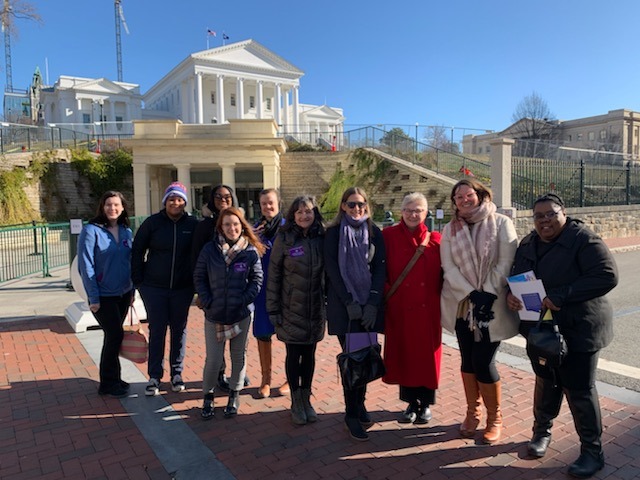

The 2020 GA Session has made progress towards making Virginia a more trauma-informed state. Thanks to all of our partners who helped create and advocate for the Campaign’s Unified Policy Agenda. Now that we have reached the halfway point of session where bills have crossed over and the House and Senate have each released their versions of the budget, we are pleased with where our priorities stand. However there is more work to do to get these items across the finish line.
Community-Level Prevention
It is really hard to get elected officials to pay attention to “prevention” because they so often need to deliver immediate results. Our efforts to address community-level prevention fell short of where we wanted, but still put us on a path towards progress.
FACT funding for community networks: The Senate included an additional $100,000 each year for FACT grants while the House has dedicated revenue to FACT from a small portion of the revenue from authorizing casinos in five communities. Neither of these proposals will get to the desired level of funding for additional community networks.
ACEs Interface training: The Senate included reduced funding for ACEs Interface training of $285,250 per year. The House did not include funding.
Five-year child abuse prevention plan: The House included language directing the Commissioner of Social Services to develop a comprehensive and collaborative plan to prevent exposure to trauma and abuse and neglect.
Both the House and Senate reduced the Governor’s proposed funding for prevention services through local DSS to around $40 million in general funds across the two years of the budget from a proposed $66 million.
Family-Based Prevention
Improve maternal health policies: Both the House and the Senate included the Governor’s proposals to extend health insurance to low-income mothers and some residents born outside the US. They also included language to study a Medicaid benefit for care by doulas and midwives but have slightly different timelines for next steps.
Expand access to home visiting: Both the House and Senate included the Governor’s proposals to expand access to home visiting through Medicaid reimbursement. The Senate version reduces the first year allocation that is unnecessary before the state seeks the appropriate state plan amendment.
Promote economic stability: As a significant improvement over the introduced budget increasing TANF payments by 5 percent, both the House and the Senate increased TANF payments, The Senate proposal is slightly stronger increasing cash assistance and eligibility levels by 20 percent. This would allow more families to be eligible for cash assistance and would increase monthly payment amounts by approximately $75 per month for two beneficiaries.
Early Identification and Intervention
Create statewide EC mental health consultation: The House passed HJ51 unanimously to study scaling up an early childhood consultation model across the state. The bill will now move on to the Senate Rules committee for discussion.
Virginia Mental Health Access Program (VMAP): Both the House and Senate included the Governor’s proposal ($4.2 million) to bring the collaboration between primary health care and mental health to scale statewide.
School-Based Interventions
School counselors: Both the House and Senate reduced the Governor’s budget proposal of $99 million to reduce the average school counselor ratio to 1 to every 250 students. While the House only adopted half of the Governor’s proposal, the Senate included about $60 million to fund one school counselor for every 300 students.
Scale-Up Evidence-Based Practices
Training to adopt evidence-based practices: Both the House and the Senate include amendments to swap funding for evidence-based services for Family First for newly available federal funds. Total funding is not impacted. However the Senate budget reduces proposed positions to provide training in the evidence-based services at DBHDS.
Workforce Recruitment and Retention
Child welfare caseworkers: Both the House and Senate included raises for state-employees and state-supported local employees that were not included in the Governor’s budget. These increases will impact child welfare caseworkers in addition to specific funding for local DSS employees to increase minimum salary levels and address salary compression.
Medicaid reimbursement for mental health providers: Both budgets include the Governor’s proposal to increase Medicaid reimbursement rates for mental health providers.
Behavioral health loan repayment: The Senate budget includes $1.6 million each year to offset student loans for mental health clinicians working at Community Services Boards (CSB).
Read More Blog Posts